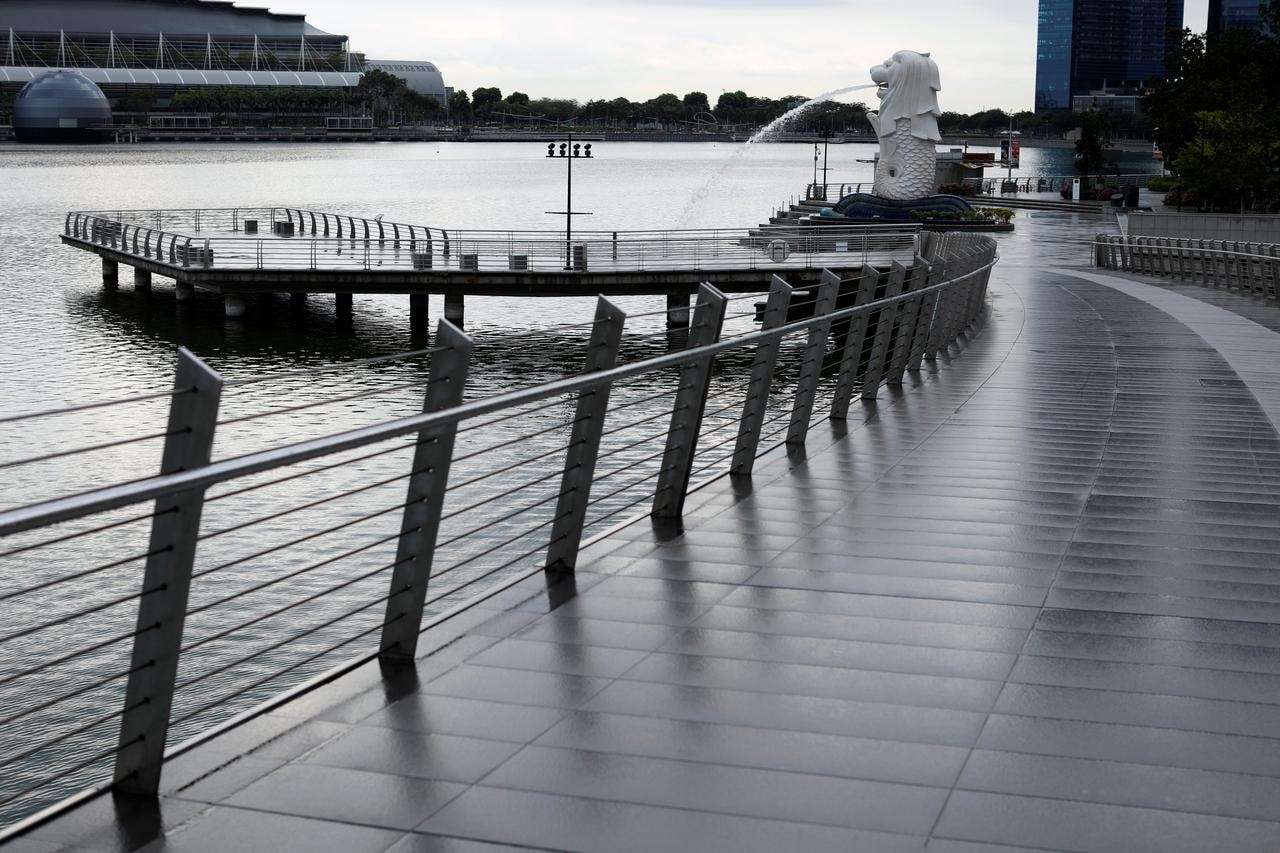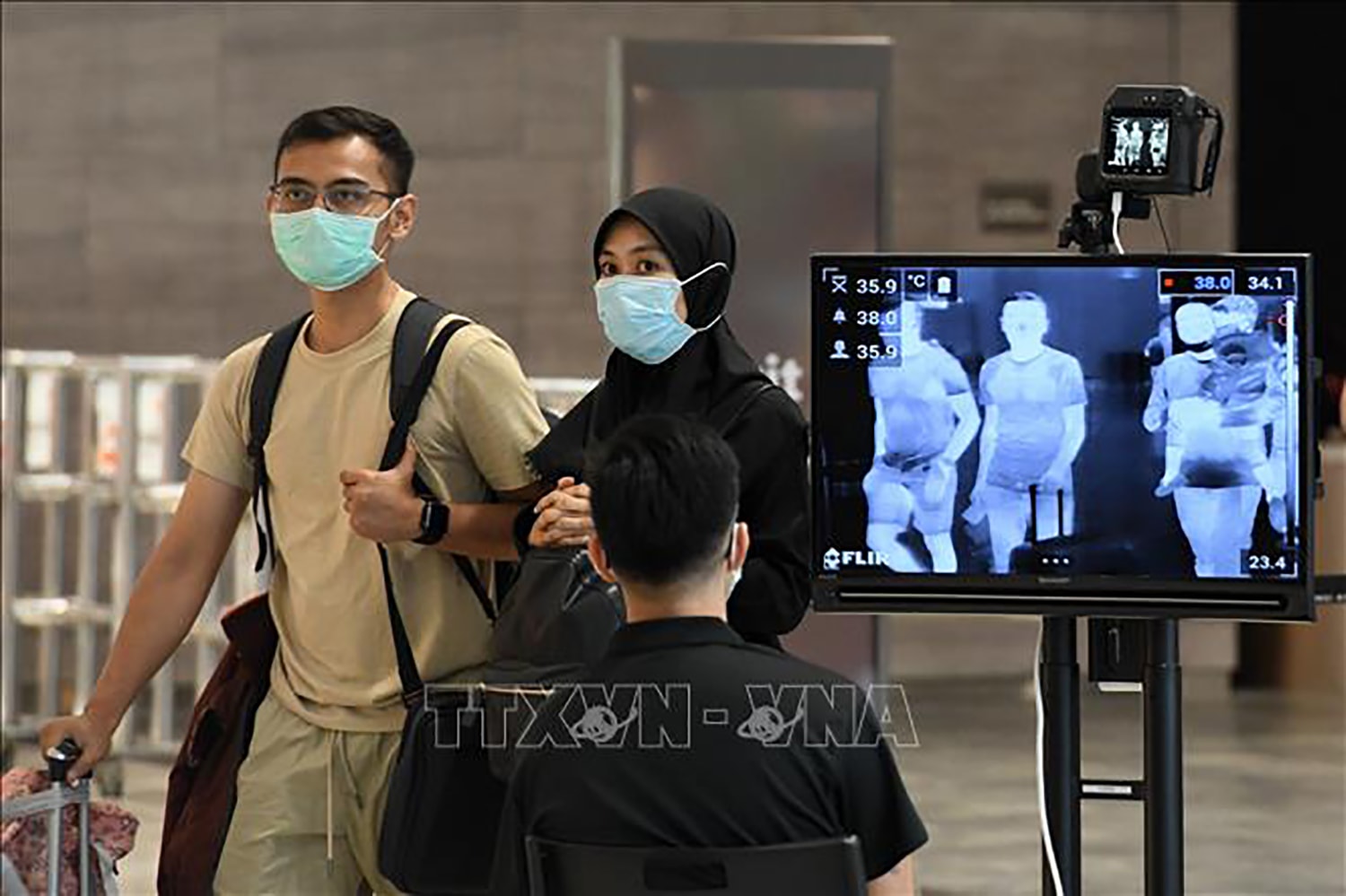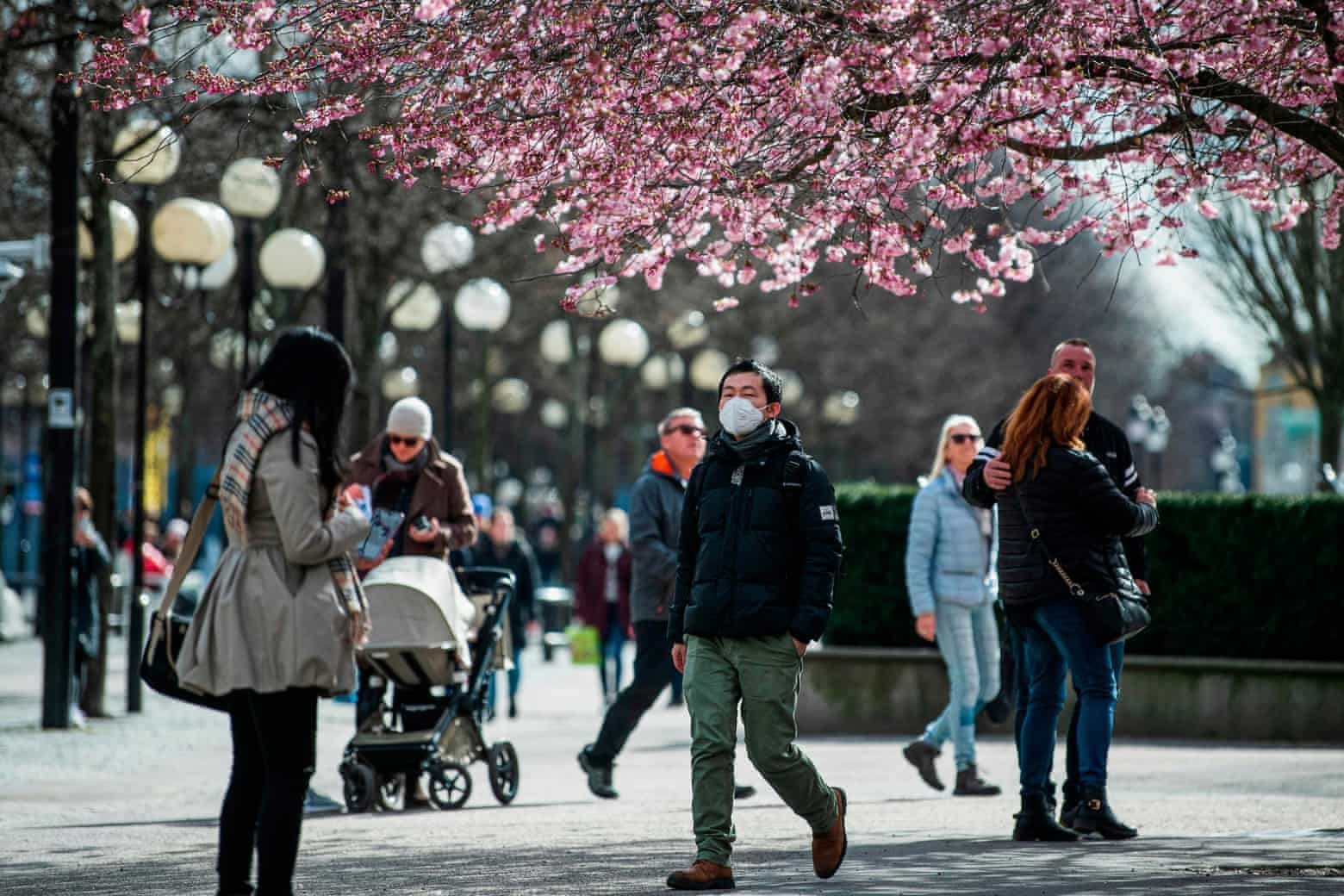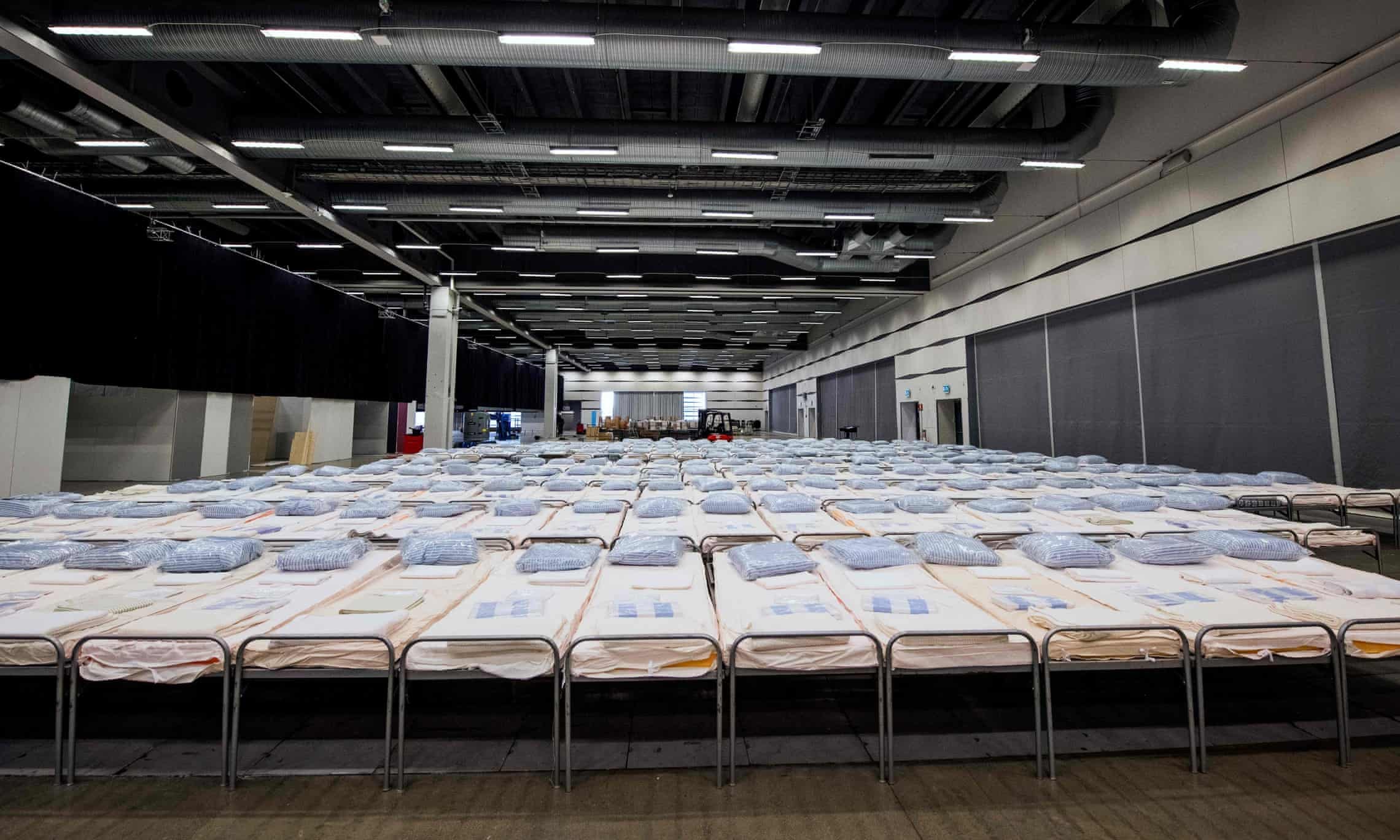The world last week: Raising the Covid-19 warning level to a particularly serious level
(Baonghean) - Last week, the number of Covid-19 infections worldwide reached 1 million people. Considered a model for the world for effective epidemic control in the fight against Covid-19, Singapore is now struggling with the infection. While European countries impose severe restrictions and close their borders, Sweden is taking a more relaxed approach to the risk of a pandemic outbreak. These are the notable international issues of the past week.
Efforts to prevent
Singapore was one of the first countries to be hit hard by the SARS-CoV-2 virus since it spread from China in January. But with strict monitoring and quarantine, the small Southeast Asian country has stemmed the tide of Covid-19 with measures that have received much praise from the World Health Organization (WHO), such as efforts to trace infected people, strict isolation measures, and timely travel restrictions. Singapore's response to the epidemic also shows that the epidemic can be contained without having to resort to lockdown measures. Many countries look to Singapore with admiration as a model for the world in effective epidemic control when the country can maintain a very low infection rate, while schools and shopping centers remain open and people's daily lives are not much disrupted.
 |
| A deserted view of Singapore's famous Merlion Park as the country enters phase 2 of the pandemic. Photo: Reuters |
Although the island nation's approach has been assessed by WHO as "trying every possible measure to prevent the epidemic", Singapore has not been more successful in the fight against Covid-19, and is even starting to show signs of tension. On April 1 alone, Singapore recorded 74 more positive cases of the virus, and on April 2, it recorded 49 new cases. In early March, Singapore had just over 100 infections, but after 1 month, the country has reached the milestone of more than 1,100 cases. More than 70% of the infections are domestic. The increase in community infections has caused authorities a "headache" because of cases of unknown origin, or unrelated to previous Covid-19 patients. This shows a new measure of the spread of the disease in the community, and the epidemic picture is no longer as optimistic as before. “Singapore’s approach is still one of the best so far,” said Michael Osterholm, an infectious disease expert at the University of Minnesota. “The reality of the outbreak in Singapore is that this is a virus that is difficult to defeat and contain.”
Meanwhile, Singapore health officials say a complete lockdown is unlikely to eradicate the virus, and any measures introduced in the coming time need to be sustainable during an outbreak that could last for months. Tougher measures will be implemented, such as closing schools and offices. “Frankly, we are worried because we are seeing more unlinked cases. And that is a sign of sporadic community transmission that we are having trouble handling,” said Teo Yik Ying, Dean of the Saw Swee Hock School of Public Health at the National University of Singapore, adding that if Singaporeans refuse to take simple measures, “no matter what the government does, the outbreak cannot be controlled.”
 |
| Checking body temperature to prevent Covid-19 infection at Changi International Airport, Singapore. Photo: VNA |
Amid new research suggesting that the SARS-CoV-2 virus can be transmitted even before symptoms appear, experts are increasingly stressing the importance of social distancing. Many argue that Singapore is still lax in implementing this measure, as evidenced by the fact that only 40% of employees in companies are working from home. Infectious disease expert Leong Hoe Nam recommends that people need to be more aggressive in implementing social distancing, because “the current measures are not enough to defeat the epidemic. Instead, the epidemic will defeat us because of the lack of preparedness of some people.”
Next week, Singapore will close workplaces from April 7 and schools from April 8. Essential services such as markets, supermarkets, clinics, hospitals, transport services and banks will remain open. All entertainment venues such as parks, museums, casinos, gyms, swimming pools... will be closed. These are considered Singapore's latest strict measures in the context of the unpredictable epidemic.
Surreal calm
Unlike its neighbors Denmark, Finland and Norway, Sweden is “going it alone” in its fight against the Covid-19 pandemic by not closing its borders, schools, businesses and all activities continue as normal. There seems to be a “surreal” calm in this European country of more than 10 million people, and in the face of warnings that half of Sweden’s population will be infected with the virus by the end of April.
 |
| People comfortably stroll and admire cherry blossoms at Kungstradgarden in Stockholm, Sweden. Photo: AFP |
The global pandemic has shut down Europe’s top economies and forced millions of people across the continent to work from home. Yet Sweden has refused to take the drastic measures that many other European countries have taken. Supermarkets, bars and restaurants remain open, and train stations and buses continue to ferry people across the country. No lockdown has been imposed, despite the country’s rising caseload.
To ease public concerns that the shocking images from Italian and Spanish hospitals might one day appear in Sweden, authorities have tightened other regulations, such as limiting gatherings to 50 people instead of the previous limit of 500. The government has also issued guidelines for citizens to avoid traveling during rush hour, and for those over 70 to limit social contact and not visit relatives during Easter. Sporting events such as soccer matches have also been asked to be canceled.
Sweden’s Public Health Agency is the main body in charge of the country’s response to the pandemic. This approach is clearly different and “ignored” the warnings of colleagues around the world. Swedish health officials say they do not deny the seriousness of Covid-19 but believe they can control it gently based on a sense of responsibility from the community, in addition to regular advice. “That’s how we work,” said Anders Tegnell, Sweden’s leading epidemiologist. “All our disease control systems are based on the principle of voluntariness.”
 |
| Hundreds of beds are set up at a field hospital being built inside the international fairgrounds in Stockholm. Photo: AFP |
This approach has drawn criticism from within Sweden itself. Panic is being felt by the Scandinavian nation’s scientific and medical community. A petition signed by more than 2,000 doctors, scientists and professors in Sweden, including the President of the Nobel Foundation, Professor Carl Henrik Heldin, has called on the government to introduce stricter containment measures. “It is the failure to test, trace and isolate enough that will lead us to disaster,” said Professor Cecilia Söderberg-Nauclér, a viral immunologist at the Karolinska Institute.
Sweden is currently ranked 19th in the list of countries affected by Covid-19 in the world, with 6,131 infections and 358 deaths (as of 1 p.m. on April 4). Sweden's epidemic prevention method is making neighboring countries including Denmark, Finland and Norway feel worried, even describing "what is happening in Sweden as watching a horror movie", although the total number of deaths in these 3 countries combined is still less than Sweden./.

.jpg)
![[Infographics] 5 biện pháp phòng, chống dịch COVID-19 [Infographics] 5 biện pháp phòng, chống dịch COVID-19](https://bna.1cdn.vn/thumbs/540x360/2025/05/22/anh-2.jpg)

-5b8619d675cc4f38cedd8c853332ddab.jpg)



